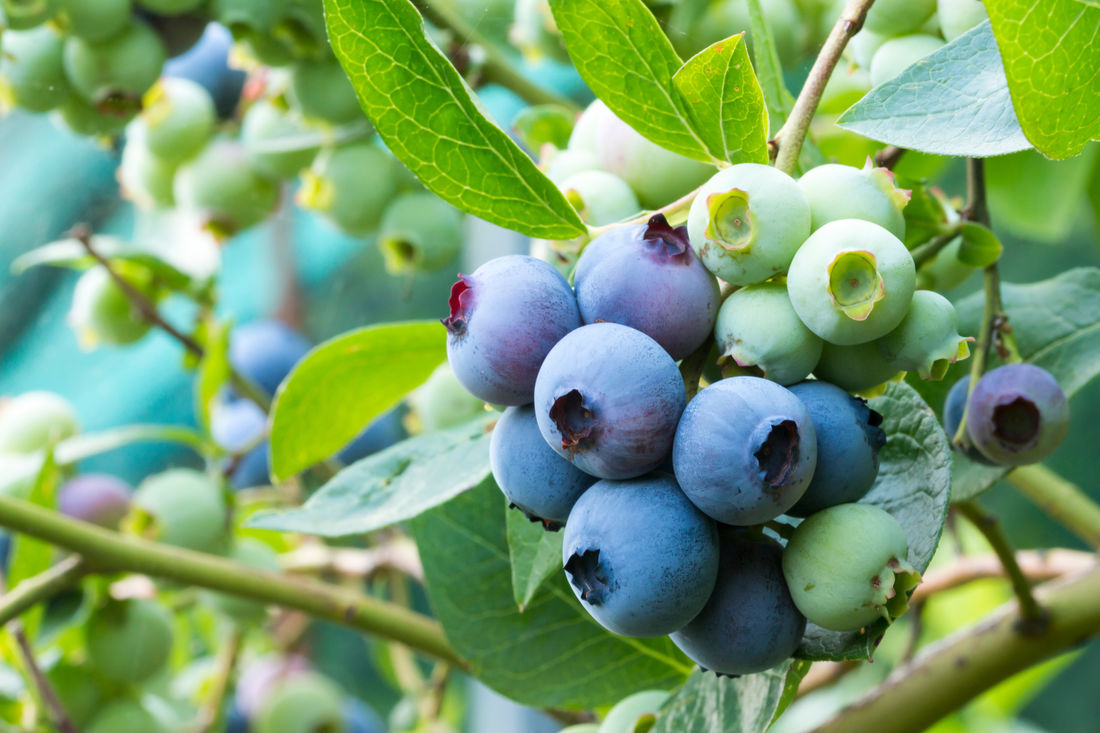Growing Guide for BlueberriesBlueberries prefer rich, moist, acidic, well drained soils high in organic matter. Plants will grow in full sun or partial shade and need to be protected from strong winds. Blueberries can be grown either in the ground or in pots but most importantly, they must be grown in an acidic soil, preferably with a pH range of 4-51/2. We highly recommended that if you live in an area with neutral or alkaline soil, you choose to grow you blueberry in a pot.
Avoid planting your blueberry plant in alkaline soil at all costs.
Blueberries grow very well as a potted plant and will grow to their full potential when planted in medium sized pot of 300 - 400mm in diameter or a 45lt GROWRITE Plant Bag. When planting your blueberry in a pot, we recommend that you use a potting mix that has been specially formulated for plants that require acidic growing conditions (for example Camellia or Azalea potting mix) and a controlled release fertilizer. An alternative to purchasing a commercial acidic potting mix is to create your own blend by mixing peat moss and standard potting mix together in the ratio of 1 part peat moss to 3 parts potting mix.
Try to avoid using manure, especially chicken or horse manure. Apply an application of Eco-Cweed fortnightly during the growing season and lightly feed in spring, summer and early autumn with some eco-growth Prime Garden all purpose rock mineral garden fertilizer. Mulch with a layer of organic matter such as partially broken down leaves as this mimics the plants’ natural growing conditions in the forest.
Blueberries do not need to be pruned other than to maintain a desired shape. Plants may be lightly trimmed at almost any time during their growing season however, excessive pruning will reduce your blueberry crop as flowers develop on the outer tips of the plants branches. If required, heavier pruning should left until late winter when plants are semi dormant.
While the varieties we sell are self-pollinating, if you find that you are not getting enough fruit from your plants, the planting of different compatible varieties can assist with the cross pollination of flowers and thus the production of a larger quality of fruit per bush. |  |
